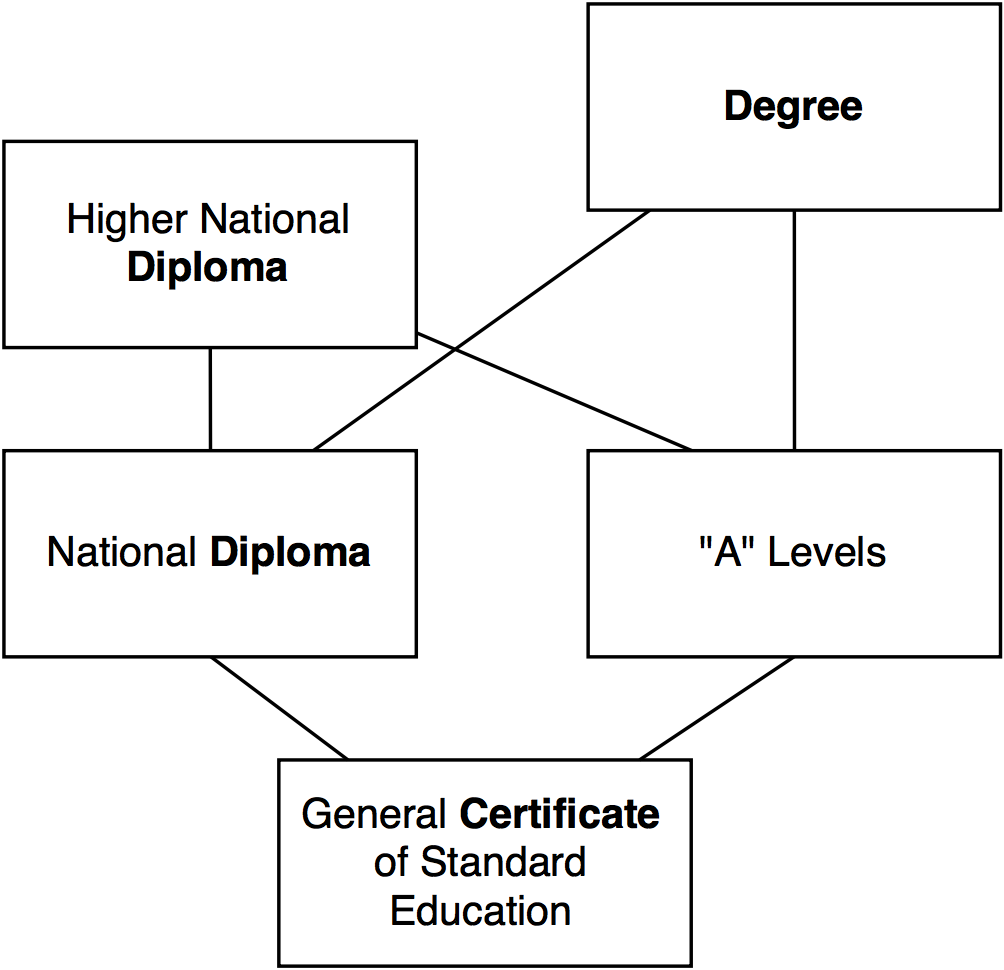I can't speak for other languages or cultures but in Britain the terms certificate, diploma and degree apply to specific levels of education.

The GCSC, or General Certificate of Standard Education, is your school leaving qualifications at 16. From there you can either go for a National Diploma at college or "A" levels at school - the two are generally equivalent and normally take two years. The National Diploma is more often of a more practical nature whereas "A" levels are usually more academic.
Which ever route you choose you can then go on to either a Higher National Diploma (a further 2 years) or a Degree (typically 3 years). A Degree is a higher qualification than an HND and again is often more academic.
Above the degree you have the PhD (or D.Phil), Masters and Baccalaureates. There is some fuzziness between the difference between these, but it basically boils down to the focus of the course. From my understanding above the Degree the terms are pretty much universal throughout the world - a PhD from Oxford is as good as a PhD from Harvard.
And then of course you have the extra meaning of some of the words. For instance, Certificate and Diploma can apply to any piece of paper. Certificate can be for any achievement in any field, not necessarily to do with education in any way at all. For instance I have a Bronze Swimming Certificate. It just marks some point of achievement for doing something. Diploma, on the other hand, is reserved for a certificate pertaining to academic achievement.

